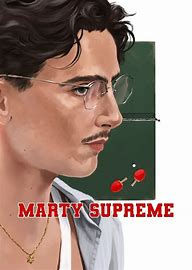All is True
- Robin Holabird

- Dec 3, 2019
- 2 min read
Updated: Mar 18, 2020
Like Shakespeare in Love, the new movie "All is True" imagines a life for the bard. More of a "Shakespeare in Grief," the story starts after a London fire destroys his theater and brings the playwright back to his family in Stratford on Avon. That return forces William Shakespeare to grapple with issues his longtime absence let him avoid, including the death of his only son thirteen years earlier. While some dates and records hold, much of All is True relies on conjecture, which this version of Shakespeare finds perfectly acceptable. "I never let truth get in the way of a good story," Shakespeare says in Ben Elton's script, giving historians the chance to let go and enjoy the movie.
Enjoyment proves easy for the bard's fans given the presence of Kenneth Branagh, Ian McKellen and Judi Dench, Shakespeare stalwarts on both stage and screen. Actor-Director Branagh, known for his grandiose takes with Shakespeare on film, lessens the scale of All is True compared to Henry the Fifth and many of his other projects. Though using striking locations, Branagh structures many scenes statically, relying on candles and other natural light sources. He plays the writer with what seems like restraint yet features a broad range of intense emotions. Plus, he gets to recite the famous Sonnet Twenty-nine, the one with that line about "fortune in men's eyes." Even better, McKellen follows with his own interpretation of the same piece, showing a different spin and nuance to its meaning and emphasizing the movie's theme about how truth varies. Writer Elton presents this concept about truth using current sensibilities and dialogue he provides for characters.
Elton's supporting characters repeatedly describe Shakespeare as the greatest writer of all time, just in case any new viewer missed that detail during literature classes. Elton also brings in modern celebrity worship in an amusing interview scene, pretending that Shakespeare faced a challenge similar to today's mass media inundation by reporters and sycophants. General audiences relate more easily the casual cadences in such scenes. But it never hurts to fall back on words from masterworks, not just Sonnet Twenty-nine but Shakespeare's wistful poem "Fear No More," which lets Dench get in the act with classic lines. Dench join Branagh and McKellen in solidifying the genius of their movie's lead character.
This review was originally aired on 7/17/2019.
You can listen to it online at https://www.kunr.org/post/all-true#stream/0




Comments